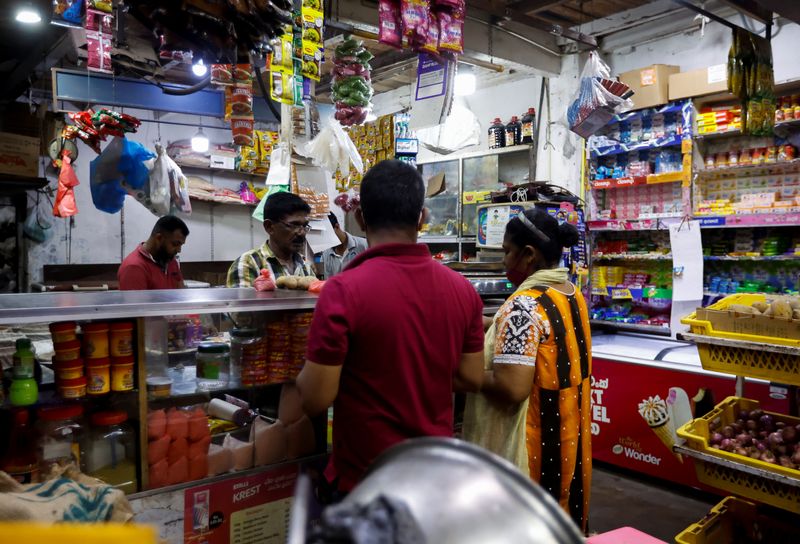(Reuters) - Sri Lanka's consumer price inflation dropped to minus 2% year-on-year in December after easing to minus 1.7% in November, official data showed on Tuesday, as the country posted a strong rebound from its worst financial crisis in decades. The National Consumer Price Index captures broad retail price inflation and is released with a lag of 21 days every month.
Prices in the food category moved to minus 1.0% after posting 0.0% in November. In the non-food category, prices changed to minus 2.9% on the month from minus 3.1% in November.
Inflation is likely to remain low in the next six months after Sri Lanka reduced its household power tariffs by 20% earlier this month.
Under the latest revision, industries will get a reduction of 30% while businesses in the tourism sector, a key foreign exchange earner for the island nation, will see their power prices slump by 31%.
"We are likely to see inflation reach positive territory of about 2%-3% by mid-year," said Shehan Cooray, head of research at Acuity Stockbrokers.
Sri Lanka's central bank also expects inflation to reach their target of 5% by mid-2025.

Sri Lanka suffered record inflation after its worst financial crisis in decades triggered by a record fall in dollar reserves pummeled the economy in 2022.
Helped by a $2.9 billion International Monetary Fund (IMF) program the island nation has posted a rebound and is estimated to have grown by 5% last year, latest central bank data showed.